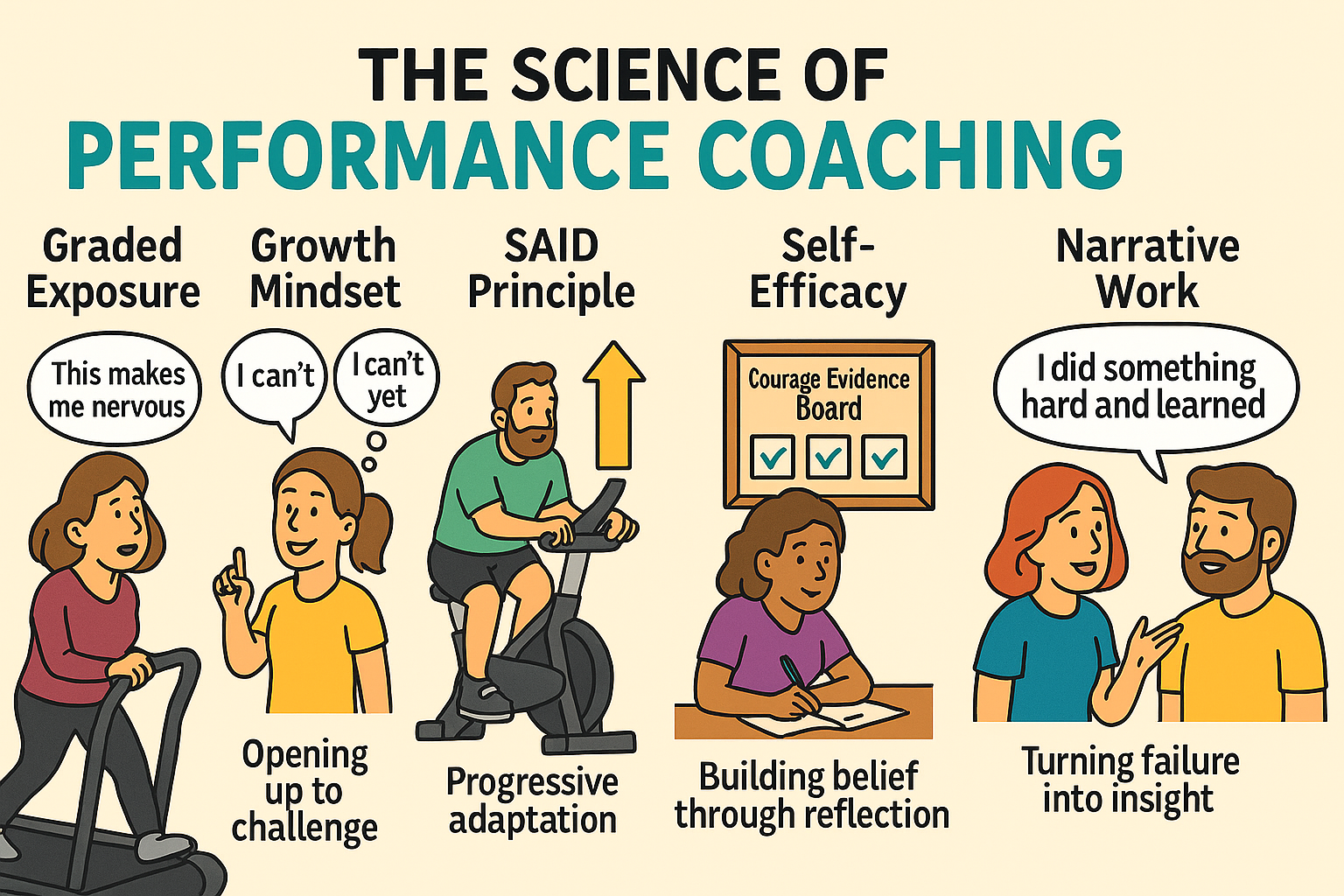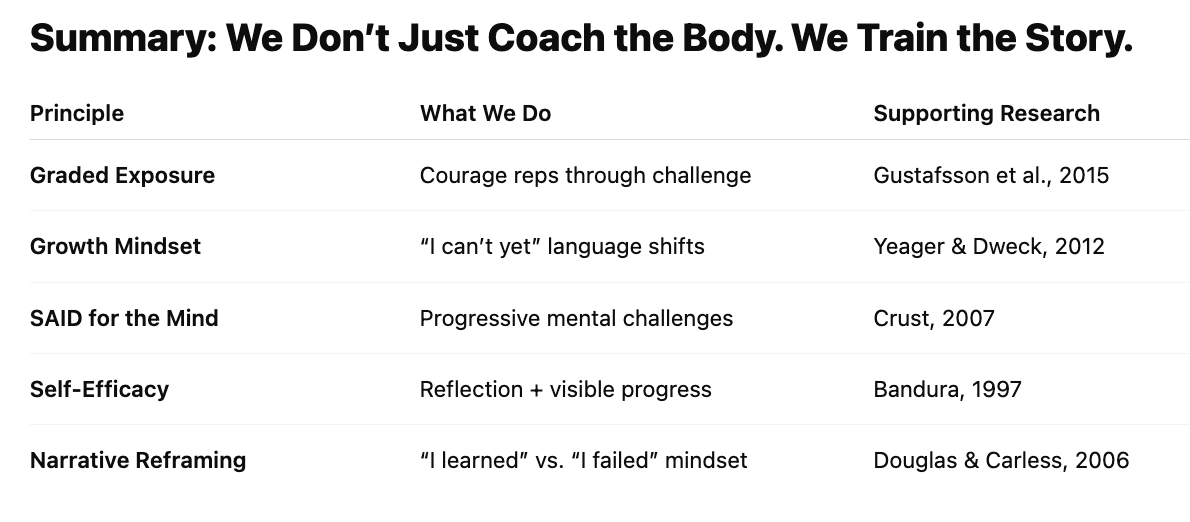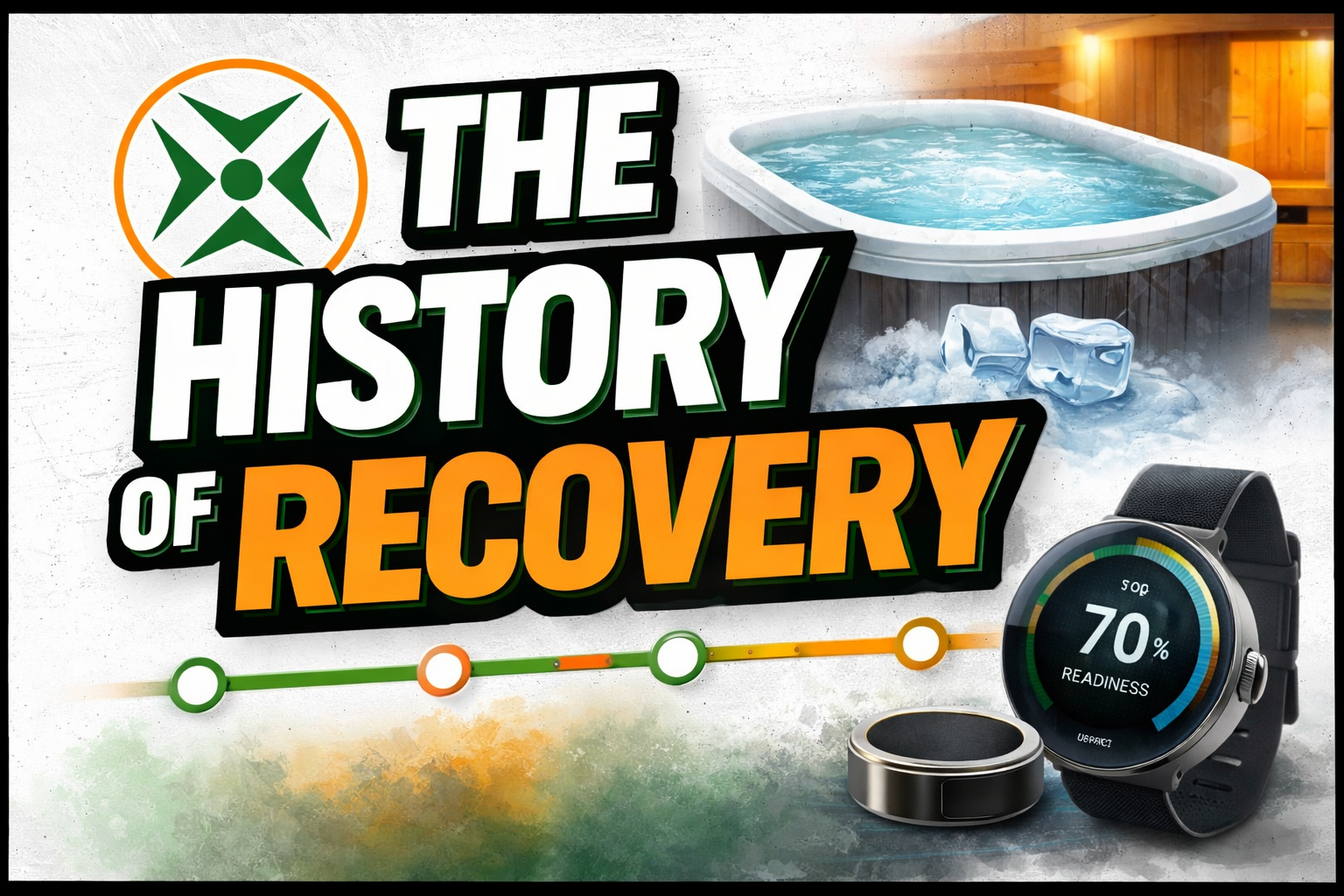But the approach isn’t just experiential—it’s evidence-based. There’s real science behind why these moments on a curved treadmill, a jump rope, or a quiet reflection board actually change people.
Here are 5 of the core psychological principles that explain the deeper "why" behind performance coaching—and how we apply them at Prototype.
1. Exposure Therapy in a Coaching Context
What it looks like in coaching:
We create low-risk “reps of courage” by intentionally introducing challenges clients tend to avoid. Running on a curved treadmill. Coaching someone else. Making autonomous decisions in a session. These are our controlled exposure scenarios.
Why it works:
Graded exposure therapy, a key principle in cognitive behavioral psychology, helps people reduce anxiety and avoidance by gradually confronting discomfort with support and intention.
Study Support:
Gustafsson et al. (2015) demonstrated how mindfulness and acceptance, paired with exposure, can reduce performance anxiety in athletes and build resilience under pressure.
2. Mindset Shifting Through Movement
What it looks like in coaching:
Clients say, “I can’t.” Our job is to help them shift to “I can’t yet.” It’s a subtle but powerful change. We integrate this mindset training directly into physical movement—because the body often leads the brain.
Why it works:
Growth mindset theory shows that people who believe their abilities can be developed through effort respond better to challenge and bounce back from failure more effectively.
Study Support:
Yeager & Dweck (2012) demonstrated that instilling a growth mindset leads to greater resilience, increased persistence, and improved motivation—especially under stress or fear of failure.
3. SAID Principle for the Mind
What it looks like in coaching:
We progressively challenge our clients—not just physically, but psychologically. A small rep might be using a new machine. A bigger rep might be leading a mini-teaching task. Each rep builds adaptation.
Why it works:
The SAID Principle (Specific Adaptation to Imposed Demands), originally from exercise science, applies to mental challenges as well. Minds, like muscles, adapt to stress when exposure is repeated and scaled appropriately.
Study Support:
Crust (2007) reviewed how structured exposure to challenge builds mental toughness, which aligns directly with how we build capacity session to session.
4. Self-Efficacy and Reflection
What it looks like in coaching:
We anchor success with reflection. We help clients document and recognize their wins—even when they feel small. The “Courage Evidence Board” is one way we make progress visible.
Why it works:
According to Bandura’s Self-Efficacy Theory, belief in your ability to succeed increases the likelihood that you will actually follow through. Reflection reinforces learning and solidifies identity change.
Study Support:
Bandura (1997) found that perceived self-efficacy directly predicts effort, resilience, and persistence in the face of challenge.
5. Narrative Reframing and Identity Work
What it looks like in coaching:
When a client says, “I failed,” we help them rewrite it: “I did something hard—and I learned.” These moments aren’t just about movement, they’re about changing internal stories.
Why it works:
Narrative therapy research shows that re-authoring your story helps individuals reclaim agency and change limiting beliefs. This is how identity shifts take root over time.
Study Support:
Douglas & Carless (2006) explored how athletes who reconstructed their performance narratives became more resilient, confident, and growth-focused in and out of sport.
Final Thought
At Prototype, performance coaching is about growth through exposure. We help people face hard things—not recklessly, but purposefully. The goal isn’t comfort. The goal is adaptation.
So next time you're building a session, remember: every rep is a chance to shift someone’s story. This is science in practice. This is what performance coaching really means.
Disclaimer:
This post reflects the principles of performance coaching, NOT therapy. While the coaching process may surface emotional resistance or personal narratives, we are not licensed therapists, and this work is not a substitute for clinical mental health care. True therapeutic support is essential for many, and I deeply respect the role it plays. What we do in performance coaching is help people build awareness, develop resilience, and shift behavior patterns through structured physical challenges and mindset reflection in a safe, supportive environment.
If you're facing significant emotional or psychological challenges, please seek help from a licensed mental health professional.






